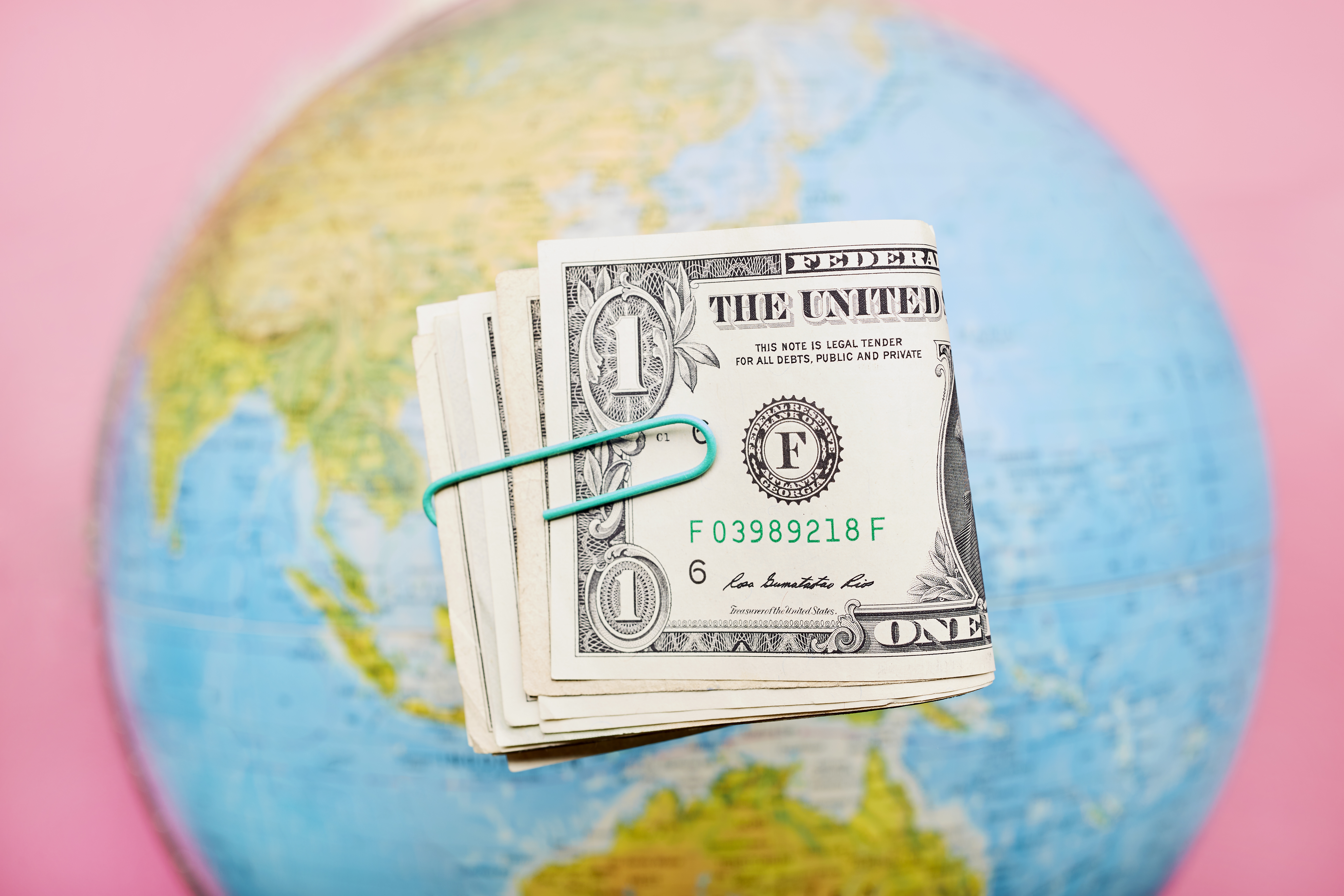How to get away affordably this summer
Strategic spots to stretch your budget


A free daily email with the biggest news stories of the day – and the best features from TheWeek.com
You are now subscribed
Your newsletter sign-up was successful

Taking a summer vacation doesn't have to drain your bank account. While that might seem hard to believe with the price of flights and lodging, there are ways you can get away affordably. Planning a budget-friendly vacation might require a bit more planning and greater flexibility, but it might be all the easier to kick back and relax when you get there without worrying about the tab you're racking up.
If that sounds like just what you need this summer, here are some tips to keep in mind as you start planning that getaway you've been dreaming about.
1. Choose your destination with cost in mind
Rather than setting your sights on the new hotspot everyone's been talking about, you might consider selecting your destination by evaluating the economics. Kiplinger recently compiled a list of the least expensive countries to visit, which it says is "based on the average total daily cost you might pay once you reach your destination — including accommodation, food, and the daily cost of living" (though note airfare is not factored into the equation).
The Week
Escape your echo chamber. Get the facts behind the news, plus analysis from multiple perspectives.

Sign up for The Week's Free Newsletters
From our morning news briefing to a weekly Good News Newsletter, get the best of The Week delivered directly to your inbox.
From our morning news briefing to a weekly Good News Newsletter, get the best of The Week delivered directly to your inbox.
Here are the top five:
- Laos: Visiting this country in Southeast Asia that boasts over 4,000 islands will set you back an average of just $15 a day. Kiplinger estimates that the average accommodation cost is $8, while average daily meals run $5.
- Turkey: This country that Kiplinger describes as "an underrated tourist destination" will run you an average of $23 a day. Plus, visitors can choose from a range of activities, from mountains, to beaches, to cities.
- Indonesia: In Indonesia, you can see "stunning beaches, volcanoes, jungles, orangutan colonies, giant Komodo dragons, and vast mountain ranges" — all for an average daily cost of $47, Kiplinger says.
- Thailand: While Kiplinger acknowledges that flights to Thailand can be pricey, once you're there, your average daily costs is just around $52.
- Hungary: If you were hoping to make it to Europe, know that it's possible to do it on the cheap. Kiplinger estimates that visitors will spend around $70 on average in Hungary.
2. Consider what's currently in demand
As you plan your trip, it's also helpful to consider what else is going on that might impact prices. For instance, did an airline recently cut or add routes to a destination? Are there any events going on that might cause prices to spike?
You might consider planning your trip on slightly off-peak times, or shortly after happenings that will attract big crowds. Understand, however, that this might require a bit of sacrifice — there's a reason people are flocking to that location when they are, after all. But per GOBankingRates, "[i]If you're willing to sacrifice things like primo weather and scheduling, on the other hand, you can expect to pay much less and have the run of the place when you get there."
When you apply via our links we may earn an affiliate commission.
A free daily email with the biggest news stories of the day – and the best features from TheWeek.com
3. Keep your eyes peeled for flight deals
This might sound like a no-brainer, but given that flights are often one of — if not the — most expensive part of a trip, getting savvy about it can make a big difference cost-wise. The Ascent suggests turning to third-party sites, such as priceline.com, kayak.com or expedia.com, to help you do the legwork of finding affordable flights. Consider setting up alerts to track whether flight prices drop.
Other resources that Kiplinger recommends to get flight deals are Scott's Cheap Flights, Airfarewatchdog, and Secret Flying.
Some additional ways to save on flights include:
- Book as early as you can: Jeff Klee, CEO of CheapAir.com, told Kiplinger that in an ideal world, you'd book a flight to Europe 11 months before your trip to get the lowest fare." And if that sort of lead-up time is already way out of the question, "make sure you purchase tickets at least six weeks before your departure because fares will dramatically increase after that point," Klee told Kiplinger.
- Aim to fly mid-week: According to Kiplinger, the best deals for flights are usually "if you fly on a Tuesday or Wednesday (and include a Saturday night)." The most expensive travel days, at least for Europe? Friday and Sunday.
- Remain flexible: This applies to both travel dates and which airports you fly into and out of. The Ascent notes that many of the sites mentioned above "offer extra discounts" if you're flexible on these factors, not to mention the wide variance in flight prices in any given month. Also considering flying into major hubs — even if that's not your final destination. For the final part of your journey from those hubs, Kiplinger suggests switching to a low-cost regional airline or even the train.
4. Don't forget to take advantage of travel rewards
What easier way to save money on travel than by earning rewards from the money you're spending? You might put your costs on a credit card that offers hotel or airline rewards. Often, The Ascent says, "these cards will give bonus miles just for opening up an account."
Another way to secure travel benefits — including "free upgrades, free luggage check-in, and even free flights, says The Ascent — is by joining an airline frequent flier program. You might also check into benefits programs offered at hotels, especially if there's a chain you often choose for your stays.
Becca Stanek has worked as an editor and writer in the personal finance space since 2017. She has previously served as the managing editor for investing and savings content at LendingTree, an editor at SmartAsset and a staff writer for The Week. This article is in part based on information first published on The Week's sister site, Kiplinger.com.
New Tax Rules for 2023: Download your free issue of The Kiplinger Tax Letter today. No information is required from you.
Becca Stanek has worked as an editor and writer in the personal finance space since 2017. She previously served as a deputy editor and later a managing editor overseeing investing and savings content at LendingTree and as an editor at the financial startup SmartAsset, where she focused on retirement- and financial-adviser-related content. Before that, Becca was a staff writer at The Week, primarily contributing to Speed Reads.
-
 How the FCC’s ‘equal time’ rule works
How the FCC’s ‘equal time’ rule worksIn the Spotlight The law is at the heart of the Colbert-CBS conflict
-
 What is the endgame in the DHS shutdown?
What is the endgame in the DHS shutdown?Today’s Big Question Democrats want to rein in ICE’s immigration crackdown
-
 ‘Poor time management isn’t just an inconvenience’
‘Poor time management isn’t just an inconvenience’Instant Opinion Opinion, comment and editorials of the day
-
 How your household budget could look in 2026
How your household budget could look in 2026The Explainer The government is trying to balance the nation’s books but energy bills and the cost of food could impact your finances
-
 What is a bubble? Understanding the financial term.
What is a bubble? Understanding the financial term.the explainer An AI bubble burst could be looming
-
 The FIRE movement catches on as people want to retire early
The FIRE movement catches on as people want to retire earlyIn the spotlight Many are taking steps to leave the workforce sooner than usual
-
 Who wants to be a millionaire? The dark side of lottery wins
Who wants to be a millionaire? The dark side of lottery winsIn The Spotlight Is hitting the jackpot a dream come true or actually a nightmare?
-
 How can you find a financial adviser you trust?
How can you find a financial adviser you trust?the explainer Four ways to detect professionals who will act in your best interest
-
 What should you consider when choosing a financial adviser?
What should you consider when choosing a financial adviser?The Explainer The right person can be a big help with financial planning, investing, taxes and more
-
 What Biden's IRA means for EV tax credits: 2024 updates
What Biden's IRA means for EV tax credits: 2024 updatesThe Explainer Which cars are eligible and how much money can owners save?
-
 How to ensure you don't outlive your retirement savings
How to ensure you don't outlive your retirement savingsThe Explainer Your golden years should be enjoyed. Don't let finances get in the way.
